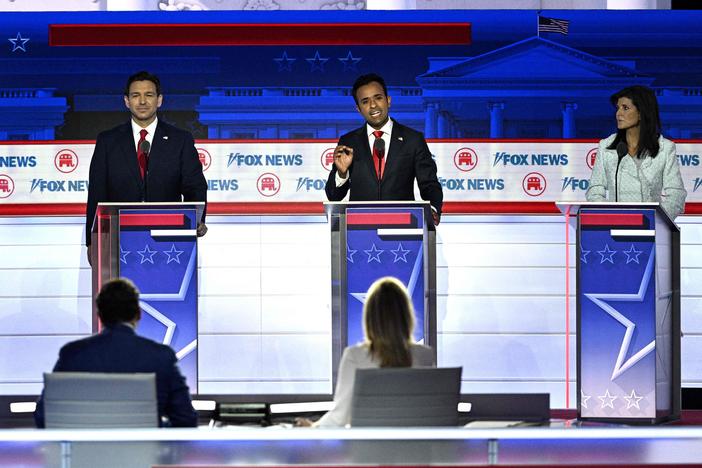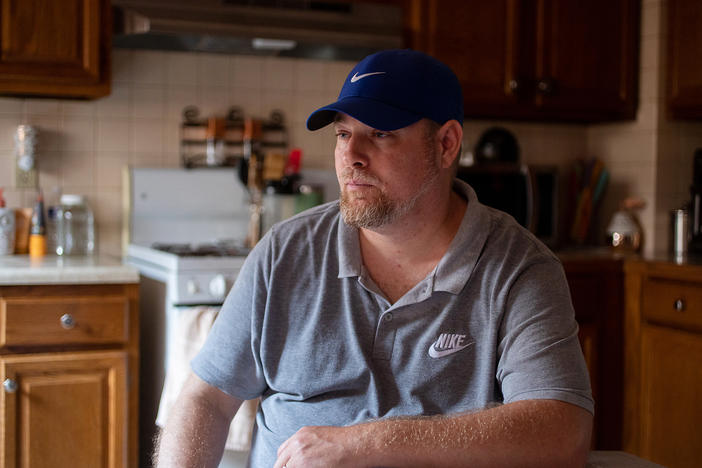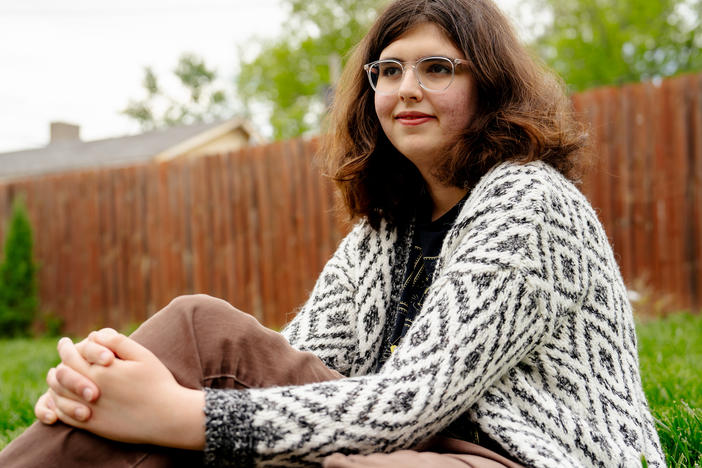Section Branding
Header Content
Hope And Skepticism As Biden Promises To Address Environmental Racism
Primary Content
People of color experience more air and water pollution than white people and suffer the health impacts. It has long been an underaddressed issue in the federal government.
Transcript
RACHEL MARTIN, HOST:
People of color in this country are much more likely to breathe polluted air and drink polluted water. The Biden administration promises to change that, starting with an executive order the president signed this week.
(SOUNDBITE OF ARCHIVED RECORDING)
PRESIDENT JOE BIDEN: With this executive order, environmental justice will be at the center of all we do addressing the disproportionate health and environmental and economic impacts on communities of color, so-called fenceline communities, especially those communities - brown, Black, Native American, poor whites.
MARTIN: But Biden is not the first president to make such a promise. Rebecca Hersher from NPR's climate team is here with more. Good morning.
REBECCA HERSHER, BYLINE: Good morning.
MARTIN: What did Biden do with this new executive order?
HERSHER: So the order creates a White House Council on Environmental Justice. So that council will suggest ways that the federal government can address the environmental impacts of systemic racism. And remember, the government helped create this situation? You know, discriminatory housing and zoning policies - they are the reason that people of color are more likely to live near power plants and refineries and highways, you know, things that release a lot of pollution.
MARTIN: Right.
HERSHER: So the federal government is promising to undo some of that.
MARTIN: The federal government has promised such before, right? I mean, this isn't...
HERSHER: Indeed.
MARTIN: ...The first time a president has acknowledged the responsibility by signing an executive order. What's going to be different?
HERSHER: Honestly, you know, Biden's approach is not very different from what past presidents have done. All the way back in 1994, President Clinton signed an executive order that also created a special group to work on environmental justice. But progress has been really slow since then. You know, overall, air and water quality in the U.S. have gotten better, but the places that were most polluted in the '90s are basically the same places that are most polluted now.
And that's deadly. You know, neighborhoods where people of color are exposed to chronic pollution, they're also the neighborhoods with some of the highest mortality rates from COVID-19 and some of the most severe damage from climate-driven disasters. So there are layers of environmental racism here, and they have not been fixed despite decades of federal promises.
MARTIN: So what's been the effect of that, all those unmet promises on people living in these places with a lot of pollution?
HERSHER: You know, people are frustrated. When you see a lot of promises, it makes you wary of new promises. I talked to a man named Devon Hall about this. He runs a local antipollution group in North Carolina. Specifically, they're trying to cut down on pollution from hog farms. So the feces from the farms, it gets in the air and the water. It makes people sick. And Black people are hit the hardest.
DEVON HALL: If you look at the map, I mean, you begin to look at where these facilities is located, it's pretty much in communities of color.
HERSHER: So Hall has been trying to reduce this pollution for more than 20 years. Regulators have acknowledged it's a problem, acknowledged that Black people are the ones who are suffering, even said that what's happening in Hall's home county violates the Civil Rights Act. But the pollution is still happening. And I asked Hall, like, what would he say to the new administration? And he had some questions that he thinks people in power should really ask themselves.
HALL: How do you give a voice to the voiceless? How do you give those people a platform to voice their concerns? And then who's going to have a listening ear? And how long will you listen to those people that's crying out?
HERSHER: He says, frankly, actions speak louder than words.
MARTIN: Right. So is there a specific action the Biden administration could take beyond this executive order?
HERSHER: Yeah. So Vice President Kamala Harris sponsored an environmental justice bill when she was a senator that could give more power to people like Hall. That bill could have more life now that Democrats control the Senate. And the Biden administration is also planning to spend trillions of dollars on pandemic recovery and climate change. That means jobs, infrastructure, health care, investments. So a lot of people are watching to see if that money is spent equitably.
MARTIN: Rebecca Hersher with NPR's climate team.
Thank you so much.
HERSHER: Thanks so much. Transcript provided by NPR, Copyright NPR.
Bottom Content



